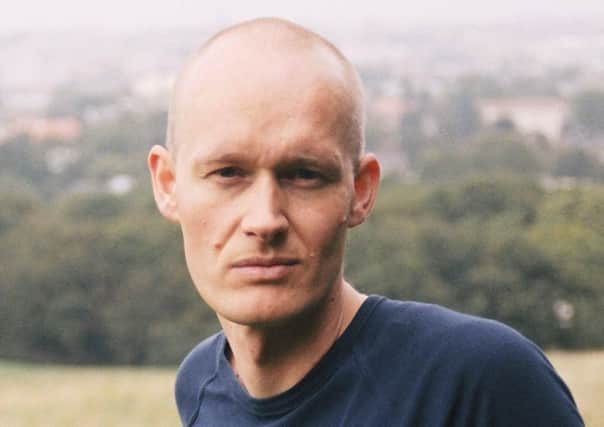Book review: The Old King in his Exile, by Arno Geiger


Arno Geiger grew up in the house that his father built in the Austrian Alps. His grandparents were farmers, his father, August Geiger, born in 1926, the third of 10 children, may well have been a farmer too had the Anschluss and the Second World War not intervened. In 1944, aged just 17, August was conscripted. Sent to the Eastern Front as a truck driver (he didn’t even have a licence) in February of 1945, he was picked up by Russian forces. Now a PoW, a bout of dysentery landed him in an army hospital for a month before he was dropped on the Austrian-Slovakian border to make his own way home.
August’s wartime experience was formative. Indelible. Traumatic. His way of coping was to never again leave the home from which he’d been forced. He created routine where there had been tumult, order where there had been chaos. He became a local government clerk. Then, at the age of 37 he married a primary school teacher 15 years his junior and they had a family. He stuck to the same routines every day of his life, organised his workshop meticulously, eschewed holidays with his family – he had no desire to leave what was familiar. And then came the onset of Alzheimer’s.
Advertisement
Hide AdThe Old King in his Exile, first published in 2011 and now translated into English by Stefan Tobler, is a deeply moving account of the impact of a disease that remains in many ways inexplicable, impacting on each person in a unique way. It’s a memoir of searing tenderness, full of feeling and yet never sentimental. Written over six years and published while the author’s father was still alive, it explores themes of profound importance: what makes a life worth living? How do we belong? How can we cope with ageing and illness and death? It’s life-affirming, funny and generous; a roadmap to help navigate the most disorienting territory.
August Geiger was in his early 70s when he started to change. Words eluded him, everyday tasks became mysterious, his carefully constructed routines failed, his familiar surroundings became strange, even unrecognisable. The early years of his illness were the worst. Sticking with the pattern of a lifetime, August didn’t speak about what he was experiencing. His family were baffled and, at times, terrified. Geiger writes movingly of his guilt about these early years, the missteps and misunderstandings, the frustrations and fear. And then came the epiphany: the understanding that if he was to get to know his father before he was entirely robbed of his memories, it was he, the son, who would have to find a way to do so. “As my father can no longer cross the bridge into my world,” he writes. “I have to go over to his.”
This proved to be no easy task. And yet the disease became a lens that allowed Geiger to see life – his own, his father’s, and the endeavour that we’re all involved in – anew. “There’s something between the two of us that has led me to open myself more to the world,” he writes. “Which is, of course, the opposite of what people normally say that Alzheimer’s does – that it cuts connections. Sometimes it creates them.”
At moments Geiger’s writing is pragmatic – he’s insistent on the futility of truthful or factual explanations for a person who has lost their way of understanding the world, encouraging instead a more empathic response – at others, it’s poetic, he turns to writers including Kafka, Hardy and Tolstoy for succour. But always, he is astute; not harsh, but startlingly honest. Geiger argues there are more similarities between us and those with Alzheimer’s than we may care to admit. “The world is confusing to all of us, and when you look at it with a clear eye, you see that the biggest difference between the healthy and the sick is simply the degree to which they are able to conceal the confusion. Underneath, chaos roils.”
He’s honest too about the impact of his father’s illness on the family. He found a way to connect and learn from his father, but his sister, despite enjoying reading what he writes, can hardly bear what’s happening: “She couldn’t find it interesting, just heartbreaking.” His brother simply “couldn’t deal with it”. Geiger too, at times, is overwhelmed. “Sometimes, standing under the shower, I had the feeling that I was still running,” he writes. “Once, when I passed the wardrobe, I felt a need to sit inside it.”
But these moments are temporary. He finds a way, in spite of the disease, to connect with his father and in doing so he understands something more clearly about life. “Alzheimer’s certainly has not benefited my father, but it has taught his children and grandchildren a thing or two. And the duty of parents is to teach things to their children, after all.” We’re fortunate that Geiger has been generous enough to share these precious lessons with the rest of us.
*Claire Black is a Gestalt therapist, based in Edinburgh
*The Old King in his Exile, by Arno Geiger is published by & Other Stories, 160pp, £9.99